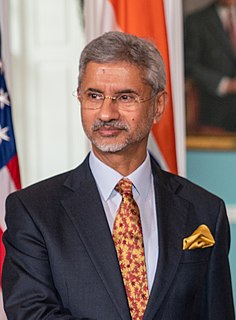Цитата Санджая Бару
Действительно, Китай, возможно, никогда не приобретет такого геополитического влияния и размаха, как Великобритания в 19 веке и Соединенные Штаты Америки в 20-м, даже если он уже превзошел геоэкономическое влияние двух крупнейших держав в период расцвета их империй.
Связанные цитаты
Все забывают, что когда я был журналистом в Великобритании и Соединенных Штатах, я всегда был канадцем. И цена экспатриации не снижается, она растет. Я никогда не чувствовал себя частью политического здравого смысла Британии. Я никогда не чувствовал этого в Соединенных Штатах. У меня не было естественного дома в Великобритании и США
Когда правительства ЕС смогут договориться о политической и экономической политике, они останутся сверхдержавой, способной влиять на американцев, русских, индийцев и китайцев в ближайшие десятилетия. Великобритания самостоятельно возобновила бы упадок, который продолжался на протяжении большей части 20-го века.
Америка, как и Британия до нее, теперь является великим защитником статус-кво. Она выступила против революции и радикальных изменений в слаборазвитом мире, потому что независимые правительства разрушили бы мировую экономическую и политическую систему, которая обеспечивает Соединенным Штатам их непропорционально большую долю экономической и политической власти ... Выдающееся богатство Америки зависит от сохранения вещей в порядке. слаборазвитом мире, как они есть, позволяя изменениям и модернизации происходить только контролируемым, упорядоченным и безопасным образом.
Хотя Пикстаун, возможно, уже не тот, что был когда-то, он по-прежнему обрамлен естественной красотой древней реки, размахом Великих равнин и длинной непрерывной береговой линией озера за плотиной. Это дало мне детство 19-го века в современном городе середины 20-го века, и я всегда буду благодарен за это.
Меня очень интересовал коммунализм 20-го века и альтернативные сообщества, бум коммун в 60-х и 70-х годах. Это вернуло меня в 19 век. Я был потрясен, обнаружив то, что я бы назвал гораздо более утопическими идеями в 19 веке, чем в 20 веке. Мало того, что идеи были такими экстремальными, так еще и удивительные люди принимали их.



































